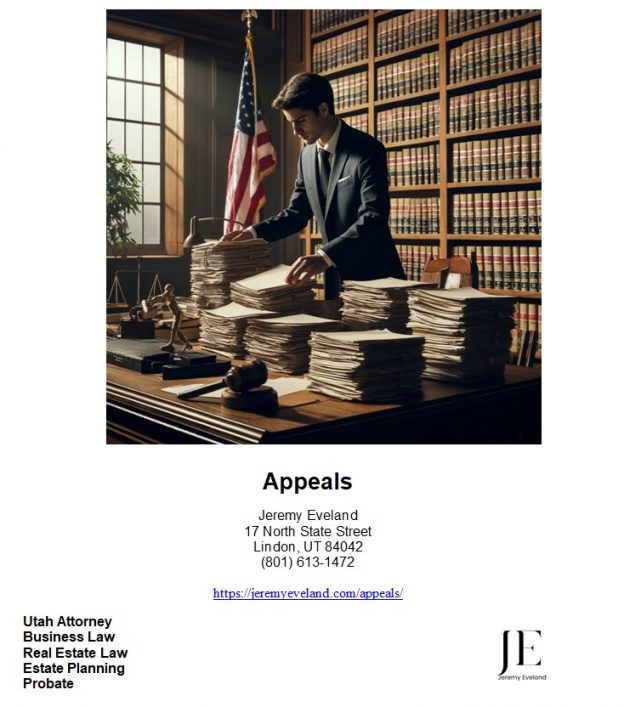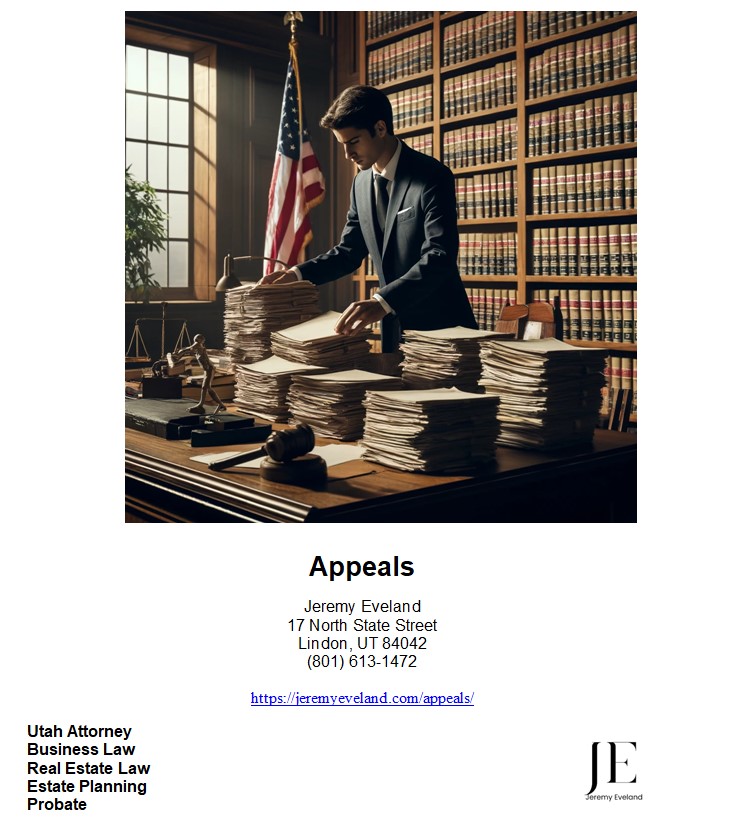Appeals
As you navigate the intricate world of legal proceedings, you might not be aware of the complex dance of strategies and nuances that define the world of appeals. From the meticulous crafting of appellate briefs to the art of persuasive oral arguments, every step in the process holds the potential to sway the outcome of your case. But did you know that there's a lesser-known aspect that can greatly impact the success of your appeal? Stay tuned to uncover this critical element that could be the key to achieving a favorable verdict in the appellate courts.
Key Takeaways
- Understanding harmless error is crucial for appeal success.
- Proper preservation of issues essential for appellate review.
- Steps from notice of appeal to court of appeals.
- Importance of accurate transcript and demonstrating prejudice.
- Filing petition for writ of certiorari for Supreme Court review.
Understanding the Appeals Process
To navigate the intricate legal landscape of appeals effectively, you must have a thorough understanding of the appeals process as outlined in the Utah Rules of Appellate Procedure and the Utah Rules of Civil Procedure. When considering an appeal, it is important to comprehend the steps involved in moving a case from the district court to the court of appeals in Utah.
One key aspect to grasp is the concept of harmless error. According to Rule 11 of the Utah Rules of Appellate Procedure, harmless error occurs when an error, defect, irregularity, or variance does not affect substantial rights. Understanding what constitutes harmless error can impact the success of an appeal significantly.
Another essential element is the preservation of issues for appeal. Rule 24 of the Utah Rules of Appellate Procedure emphasizes the importance of raising objections, making motions, or presenting arguments in the trial court to make sure that issues are preserved for appellate review. Failure to preserve issues properly may result in those issues being waived on appeal.
Grounds for Filing an Appeal
Grounds for filing an appeal encompass a range of legal bases on which a party may seek review of a lower court's decision in Utah. When contemplating whether to file an appeal, it is important to understand the specific grounds that justify such action. Here are some key points to keep in mind:
-
Notice of Appeal: One of the initial steps in filing an appeal is submitting a formal notice of appeal to the appropriate court, as per Rule 3 of the Utah Rules of Appellate Procedure.
-
Transcript: Ensuring an accurate record of the proceedings is crucial. Rule 11 of the Utah Rules of Appellate Procedure outlines the requirements for preparing the transcript for the appellate court.
-
Prejudice: Demonstrating that the lower court's decision was prejudicial and had a significant impact on the outcome of the case is a common ground for filing an appeal.
-
Petition for Writ of Certiorari: If seeking review by the Utah Supreme Court, filing a petition for a writ of certiorari is necessary to request the court's review of the lower court's decision.
-
Legal Errors: Identifying legal errors, such as misapplication of the law or procedural errors, can also form the basis for an appeal. It is essential to cite specific rules or statutes that were allegedly misinterpreted or overlooked.
Understanding these grounds is essential when contemplating whether to pursue an appeal in Utah.
Preparing for Appellate Review
When considering preparing for appellate review in Utah, it is essential to meticulously adhere to the procedural requirements outlined in the Utah Rules of Appellate Procedure and the Utah Code. Appellate review involves a higher court reviewing a lower court's decision to determine if any errors were made. The appellate court conducts a de novo review of the case, meaning it looks at the case with a fresh perspective and does not give deference to the lower court's judgment.
To initiate the appellate process, the party seeking review must file a notice of appeal within the specified timeframe as per Rule 3 of the Utah Rules of Appellate Procedure. Subsequently, the appellant must file a docketing statement, as required by Rule 4, to provide essential case information to the appellate court.
Moreover, preparing persuasive appellate briefs is vital. An appellant's brief must present arguments supported by legal authority and facts to convince the appellate court to reverse the lower court's decision. Conversely, the appellee's brief aims to uphold the lower court's judgment by demonstrating why it was correctly decided. Each brief must adhere to the formatting and content requirements outlined in Rule 24 of the Utah Rules of Appellate Procedure.
The Role of Oral Arguments
Oral arguments play an essential role in the appellate process, providing an opportunity for litigants to present their case directly to the appellate court. During oral arguments, you have the chance to address the judges, clarify legal points, and counter any questions they may have. Here are five key aspects of the role of oral arguments in the appellate process:
- Clarification: Oral arguments allow you to elucidate complex legal issues or nuances that may not have been fully understood from the written briefs alone.
- Persuasion: It is your opportunity to convincingly argue your position, highlighting key facts and legal principles to sway the judges in your favor.
- Question Answering: The judges may have specific questions they want you to address, and oral arguments give you the chance to directly respond to these queries.
- Rebuttal: You can use oral arguments to counter points made by the opposing party, strengthening your own position and undermining theirs.
- Time Limit: Be mindful of the time constraints set by the Utah Rules of Appellate Procedure; effective time management during oral arguments is crucial to ensure you cover all essential points.
In both civil appeals and administrative agency appeals, the oral arguments stage is a critical juncture in the appellate process, where your advocacy skills and legal knowledge are put to the test.
Potential Outcomes of Appeals
Upon review of the appellate process, the potential outcomes of appeals are varied and can greatly impact the final resolution of a case. When it comes to a juvenile court appeal, the ruling can be affirmed, reversed, or remanded for further proceedings. In criminal appeals, the appellate court may uphold the conviction, order a new trial, or even dismiss the case entirely based on legal errors. In small claims appeals, the decision could be upheld, modified, or reversed based on the facts presented.
Understanding the rules governing appeals is important in anticipating potential outcomes. The Utah Rules of Appellate Procedure outline the procedures for appealing a decision from the district court, juvenile court, or other lower courts. These rules provide a framework for how appeals are conducted, the deadlines for filing appeals, and the requirements for presenting arguments before the appellate court.
In the domain of civil procedure, the Utah Code also sets forth specific guidelines for appealing decisions in various types of cases. Whether it's a juvenile court appeal, criminal appeal, or small claims appeal, following the established rules is essential to achieving a favorable outcome. By adhering to these rules and presenting a compelling case on appeal, you can increase the likelihood of a successful resolution to your legal matter.
Frequently Asked Questions
Can I Appeal a Small Claims Court Decision?
So, you've just received a decision from small claims court that you're not thrilled about. Wondering if you can appeal? Let's delve into and explore the process and options available to you.
How Long Do I Have to File an Appeal?
You have 30 days from the date of the final judgment to file an appeal in Utah. Make sure to adhere to this timeline as missing it can result in losing your right to appeal.
What Happens if the Appellate Court Disagrees With the Lower Court's Decision?
If the appellate court disagrees with the lower court's decision, it can overturn the ruling, modify it, or send it back for further consideration. Understanding the reasons for the disagreement is vital for your case.
Is It Possible to Appeal a Default Judgment?
If you miss responding to a lawsuit, the court may enter a default judgment against you. Appealing a default judgment can be complex, but it is possible under certain circumstances. Legal advice is essential.
Can I Represent Myself in an Appellate Court?
Yes, you can represent yourself in an appellate court. It is important to thoroughly understand the rules, procedures, and deadlines in appellate practice. Consider seeking guidance or legal advice to navigate the complexities effectively.
Areas We Serve in Utah
We serve individuals and businesses in the following Utah locations:
Salt Lake City Utah
West Valley City Utah
Provo Utah
West Jordan Utah
Orem Utah
Sandy Utah
Ogden Utah
St. George Utah
Layton Utah
South Jordan Utah
Lehi Utah
Millcreek Utah
Taylorsville Utah
Logan Utah
Murray Utah
Draper Utah
Bountiful Utah
Riverton Utah
Herriman Utah
Spanish Fork Utah
Roy Utah
Pleasant Grove Utah
Kearns Utah
Tooele Utah
Cottonwood Heights Utah
Midvale Utah
Springville Utah
Eagle Mountain Utah
Cedar City Utah
Kaysville Utah
Clearfield Utah
Holladay Utah
American Fork Utah
Syracuse Utah
Saratoga Springs Utah
Magna Utah
Washington Utah
South Salt Lake Utah
Farmington Utah
Clinton Utah
North Salt Lake Utah
Payson Utah
North Ogden Utah
Brigham City Utah
Highland Utah
Centerville Utah
Hurricane Utah
South Ogden Utah
Heber Utah
West Haven Utah
Bluffdale Utah
Santaquin Utah
Smithfield Utah
Woods Cross Utah
Grantsville Utah
Lindon Utah
North Logan Utah
West Point Utah
Vernal Utah
Alpine Utah
Cedar Hills Utah
Pleasant View Utah
Mapleton Utah
Stansbury Par Utah
Washington Terrace Utah
Riverdale Utah
Hooper Utah
Tremonton Utah
Ivins Utah
Park City Utah
Price Utah
Hyrum Utah
Summit Park Utah
Salem Utah
Richfield Utah
Santa Clara Utah
Providence Utah
South Weber Utah
Vineyard Utah
Ephraim Utah
Roosevelt Utah
Farr West Utah
Plain City Utah
Nibley Utah
Enoch Utah
Harrisville Utah
Snyderville Utah
Fruit Heights Utah
Nephi Utah
White City Utah
West Bountiful Utah
Sunset Utah
Moab Utah
Midway Utah
Perry Utah
Kanab Utah
Hyde Park Utah
Silver Summit Utah
La Verkin Utah
Morgan Utah
Utah Appeals Lawyer Consultation
When you need help from a Utah appeals lawyer, call Jeremy D. Eveland, MBA, JD (801) 613-1472 for a consultation.
Jeremy Eveland
17 North State Street
Lindon UT 84042
(801) 613-1472
Related Posts
What Is A Conflict Of Interest For A Lawyer?
Understanding Utah’s Labor Laws
Business Lawyer North Salt Lake Utah
Product Liability Laws in Utah
Preventing Cybersecurity Breaches
Business Lawyer North Ogden Utah
Shareholder Agreements in Utah
Business Lawyer Hurricane Utah
Corporate Attorney West Jordan UT
Estate Planning For Survivorship Considerations
Construction Lawyer West Bountiful Utah
Estate Planning for Business Asset Protection
Are Small Business Loans Worth It?

